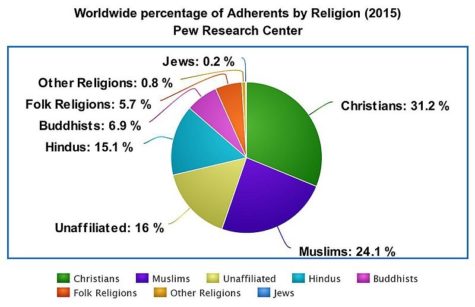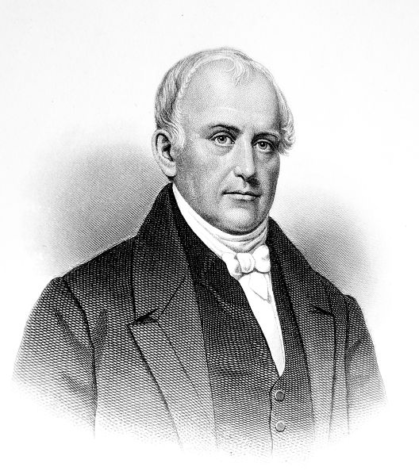The Why Behind Goodness
Exploring the nature of kind acts
May 11, 2022
The Golden Rule
Many of us learned about the Golden Rule at a young age. The Golden Rule is a popular ethical concept that says that one should treat others the way that they want to be treated. It’s a respectable idea to live by, but what if you were told that you are actually deriving benefit from such behavior?
Participating in our school’s Great Kindness Challenge by treating others charitably, generously, kindly, or with any other behavior you’d want to receive back, leads to real returns. The concept may seem counterintuitive. How can generous acts be inherently self-beneficial? The array of “selfish arguments” one could make for this idea are quite simple. Working for the wellbeing of others can often lead to returns economically, socially, and even psychologically.
Economic Argument
To understand the selfish argument for economically helping the less fortunate, one must first understand that human progress is driven by a demand for such progress, and a supply or means for it. When a community or region is resourceful and therefore has people able to purchase more and better, there is higher demand for innovation and production. In that same community, which has resources like raw materials and higher education, production and innovation can be facilitated for those who desire it.
With that established, one must also understand that because of international trade and long-distance communication, to a certain degree, innovation and progress is globally linked. Therefore, prosperity on the other side of the world can lead to technological advancements and other innovation to take place locally as well.
While poor farmers who barely produce enough to feed and shelter their own families are of no benefit to a faraway stranger, a large and successful farming business can export their products to other nations. Likewise, a community of educated researchers can share pieces of valuable research to be expanded upon. If the less fortunate regions of the world begin to prosper, humanity’s total output of advancements would increase substantially. This fact provides an incentive for economic generosity towards, and bringing prosperity to, poorer nations.
Social Argument
The economic argument is convincing at a large scale, but what benefit is there for holding the door open for someone? What about something as trivial as a compliment? Even miniscule acts of kindness are favorable to the individual. To put it simply, kindness is contagious. A Stanford University study found that people who witnessed stronger acts of kindness were more compelled to do acts of kindness at a similar scale. For example, people who saw bigger donations were likelier to donate more themselves, and those who saw another act charitably were friendlier and more empathetic. As this study demonstrated, people are naturally compelled to respond with more altruistic behavior when they see it in others. When more people behave kindly, others in their community become likelier to do the same, effectively contributing to making the community a better place for all. A better community is beneficial to each individual, including you.
Stanford University is a university in California for private research. The university ranks one of the highest globally.
Furthermore, the fact that benefiting others benefits oneself holds true at an even smaller scale than a local community. Such behavior improves specific relationships. This is quite a self-evident claim. Of course, treating someone well will strengthen the relationship, making them more inclined to treat you well too. In a future time of need, the support of others can completely change how well a situation is handled. Imagine the following: A friend of yours has suffered a traumatic event in their life, like a serious illness or death of a loved one. As you support them through their struggle, they will value the relationship more. When you find yourself in a struggle yourself, like a divorce or loss of livelihood, coping will be much easier with the support of relationships.
Psychological Argument
The aforementioned arguments are all reliant on return over time, but generosity comes with an immediate return. We’ve all felt this immediate return, but most of us fail to acknowledge it as a physical phenomenon. This immediate reward is a result of our anatomy. From an intentional act of kindness, oxytocin and serotonin levels are boosted, dopamine is released, and stress is reduced. Oxytocin aids in forming social bonds and lowering blood pressure. The dopamine results in a “helper’s high”, a feeling of pleasure for being kind. Lastly, serotonin assists in mood regulation, bringing about feelings of well-being and genuine happiness. Considering the natural human response to acts of kindness, such acts are inherently beneficial to an individual, regardless of any products of the action outside one’s own body. In fact, increasing quantities of research has shown the therapeutic value of something like helping another during one’s own times of depression.
Pictured here is serotonin, a hormone associated with emotional well-being and stabilizing mood. Although it isn’t as simple as a single chemical being responsible for a specific emotion like “love” or “happiness”, emotions are controlled by the levels of different chemicals in the body. Links between certain feelings and chemicals have been discovered.
What Does This Mean for Me?
So why does this all matter? Should these ideas be the driving force behind our good acts? Any selfish incentives that drive acts of goodness aren’t necessary for most. Some of the ideas that were just explored, like gaining the valuable support of someone that’s received good treatment from you in the past, are in fact the very reasons that they are not necessary for an individual to practice compassionate behavior. Naturally, because of the common occurrence of one or more mutual benefits, humans are inclined to bring about good for others. Evolution causes populations to develop favorable traits, including the human compassion that fuels every little act of kindness.
Charles Darwin, the man credited for the theory of evolution by natural selection, and therefore the founding of modern evolutionary studies, made this very connection between compassion and evolution. Darwin wrote that “communities which included the greatest number of the most sympathetic members would flourish best and rear the greatest number of offspring”. According to Paul Ekman, a pioneer in studying emotions, what Darwin considered sympathy would be referred to as empathy, altruism, or compassion today. As more of these compassionate and kinder offspring are produced, the population moves towards treating each other better as a whole.
Due to evolution, the selfish arguments for compassion have been ingrained into the nature of our species, among many others. We don’t need selfish ideas to drive good acts because we often want to behave compassionately regardless. This natural desire becomes the primary incentive to live by the Golden Rule for many, whether or not that is done conscious of the rule as a philosophical concept and moral code.


